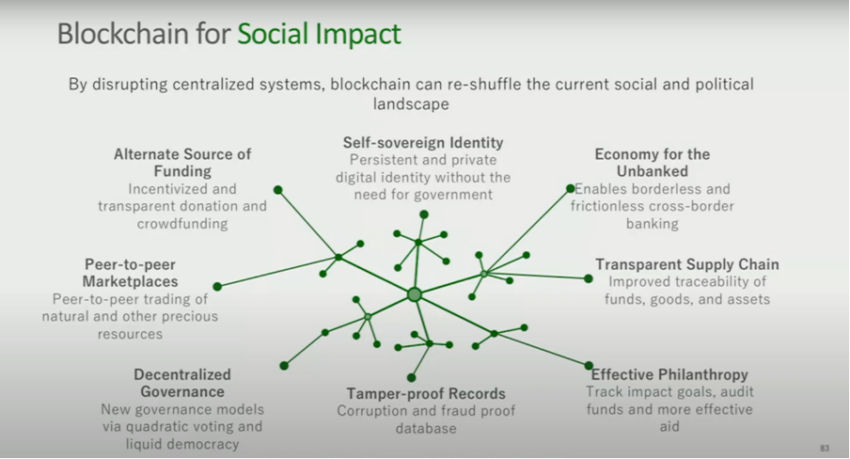Blockchain technology stands tall when considering its impact on social issues. One such cohort can be a corporate’s take on corporate social responsibility (CSR). This not only builds trust with respective clients but also boosts transparency.
The emergence of blockchain has led to changes and implementations across the globe within many sectors. From cybersecurity to gaming, all have incorporated blockchain in one way or another.
The corporate sector, in particular, has been fairly successful in separating the practical uses of the blockchain from the hype surrounding cryptocurrency and speculation. Many corporations and companies across the globe are starting to focus more time and energy on using blockchain technology for ‘corporate social responsibility’ (CSR).
At this point, CSR has become more than just a marketing strategy to promote a company. Fighting against global warming is probably the biggest example of CSR in recent times. Per a recent global CSR report, around 86% of respondents expected companies to participate in CSR-led changes focussing on social and environmental issues.

CSR in the Supply Chain
Consumer brands have also invested a significant chunk of their total budgets in driving CSR initiatives. The global CSR activities market for the software sector is projected to reach $1.4 billion by 2028. Meanwhile, the global sustainability consulting market is projected to reach nearly $12 billion by 2028.
CSR aims to minimize the environmental impact across all activities of a supply chain. Blockchain provides governance and accountability throughout the supply chain.
Typical issues with supply chain management include the need for more transparency between entities and discrepancies in records. This makes it hard for the end customer to gauge the sustainability or impact of a particular product.
How Can Blockchain Help?
Because it is transparent, permanent, and immutable, blockchain technology establishes accountability and provides legitimacy to all parts of the supply chain. This helps preserve CSR’s genuineness instead of companies just using it as a marketing gimmick to get positive public relations.
Blockchain can serve multiple purposes in the realm of CSR. First, in provenance, tracking the identity and the source of something back to its origin. Examples of this include organic food products, expensive commodities, or even the digital identity of refugees, where identity is hard to come by.
Second is the exchange of value, where something goes from one party to another, whether it’s the monetary value or something of value to the receiving end. So, it could be of financial value to refugees who are displaced in different parts of the world or government to citizens on a welfare program.
Blockchain’s tokenized economy provides potential ways of digitizing land rights or land titles and using that to empower small/medium enterprises to get better credit, collateralize their crop yield, or get better financing or insurance. It’s estimated that around 1.4 billion people worldwide are currently unbanked.
Blockchain Adoption
Blockchain company Civic Ledger spoke to BeInCrypto on the topic of adoption rates of the technology. Following the conversation via Twitter, the team shared valuable information regarding blockchain’s play in enhancing its CSR footprint.
“Blockchain technology enables a much higher level of transparency and visibility, and companies that are first to adopt will reap the rewards — consumer trust and loyalty, cost and time-savings, improved efficiency and safety, plus, potentially, government support for sustainability initiatives and innovation.”
Overall, blockchain has proved its worth across several sectors. The technology is still in its nascency, however. Can it reach a higher potential in 2023?
Disclaimer
Following the Trust Project guidelines, this feature article presents opinions and perspectives from industry experts or individuals. BeInCrypto is dedicated to transparent reporting, but the views expressed in this article do not necessarily reflect those of BeInCrypto or its staff. Readers should verify information independently and consult with a professional before making decisions based on this content. Please note that our Terms and Conditions, Privacy Policy, and Disclaimers have been updated.


